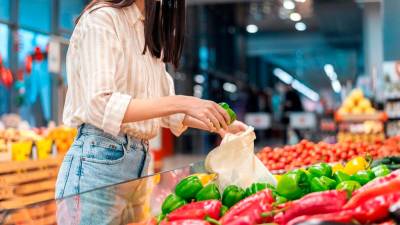A netizen has gone viral after calling out what they see as a double standard in the way Malaysians and Singaporeans are treated when shopping across borders.
In a post now making waves on Threads, user @kin_munch_kin questioned why Singaporeans often face criticism for buying groceries in Johor Bahru, while Malaysians frequently travel abroad — even to Europe — to purchase luxury items, often without backlash.
“Guys, many Malaysians buy luxury bags in London because it’s cheaper, and everyone’s fine with it. But when we Singaporeans buy groceries in Malaysia because it’s cheaper, why do we get criticised?”
“We truly love Malaysia and respect our neighbours — hopefully one day we can celebrate each other without bitterness.”
In a follow-up comment, @kin_munch_kin clarified that the comparison wasn’t about equating groceries with designer goods, but highlighting how people naturally shop where they find better value — regardless of what they’re buying.
“I’m not trying to compare branded bags with groceries — it was just an example. The principle is simple: people naturally go where things are cheaper. Malaysians go to Thailand, Singaporeans go to JB, people buy branded stuff in Europe.”
“It’s the same concept — looking for value. So let’s open our minds and try to accept that. At the end of the day, mutual respect matters.”
The post sparked a wave of responses, with many Malaysians stepping in to explain that the frustration isn’t about foreigners shopping here, but about accessing government-subsidised goods meant for Malaysian citizens.
User @yappermomof3 wrote: “Buying things in Malaysia is OK. But what’s not OK is when you try to steal subsidised items like fuel, cooking oil, sugar — which are meant for locals. That’s VERY WRONG. Otherwise, no problem — come as a civic-minded tourist.”
Echoing that sentiment, @evennina explained the bigger picture: “Unlike Singapore, Malaysia heavily subsidises many basic items including fuel, sugar and chicken to keep them affordable for locals. When non-citizens benefit from these subsidies in large volumes, it creates strain on our system.”
“It’s not about gatekeeping. It’s about protecting access to essentials for those who live here and depend on these subsidies every day — especially in rural areas and lower-income groups.”
